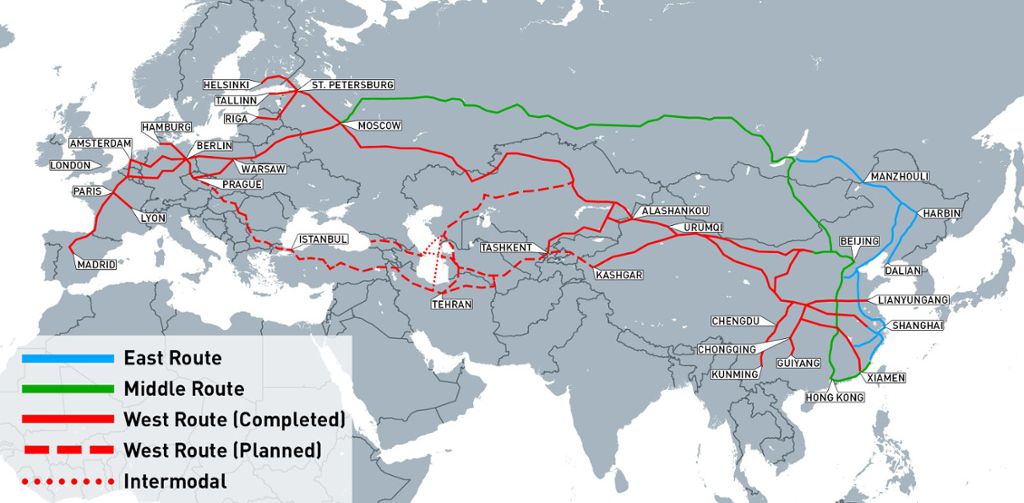The American-Backed "Belt and Road" Port in Georgia
Georgia will be the latest nation to undertake a port project along China's "Belt and Road" route from East Asia to Europe, but it is moving forward with American rather than Chinese investment.
Georgia's $2.5 billion "Anaklia Deep Water Black Sea Port" will be a post-panamax-capable container facility with 52-foot berth depths, and it will be capable of accommodating container vessels of up to 10,000 TEU. Phase 1 is expected to come online by 2021.
Seattle-based terminal operator SSA Marine and New Jersey-based conglomerate Conti Group won the Georgian government's tender for the project, beating out a Chinese contender. The port plan attracted international attention: Conti won the Dubai Investment Forum's "best project of the year" award for Anaklia when it was first announced in 2016.
Anaklia has the endorsement of the U.S. government, as well. “The Anaklia Deep Sea Port shows the potential of a stronger bilateral relationship between our nations," said Vice President Mike Pence on a visit to Georgia last August. "American companies are investing alongside their Georgian counterparts in this multi-billion-dollar project. As we look toward the future, our two nations have untold opportunities to contribute even more to each other’s prosperity.”
While the project is American-backed, Georgian officials have billed it as a "Silk Road" development, highlighting its potential as a part of the "Belt and Road" transport network between China and Europe.
Georgia is roughly 700 miles south of the Russian rail lines that carry Chinese freight to Europe, and additional infrastructure would be required to attract "21st Century Silk Road" transshipment cargo. A planned alternative rail route through Central Asia and Iran could bring East Asian cargo volume to the Caucasus, but the two main route options that would affect Georgia's ports would involve ferrying Chinese freight across the Caspian to Azerbaijan, then transporting it overland (below).


that matters most
Get the latest maritime news delivered to your inbox daily.
Planned "Belt and Road" rail routes (Chinese Ministry of Transport / state media)
Beyond transshipment, Georgia also hopes to leverage its port infrastructure to attract foreign manufacturers. It has new free trade agreements with both China and Europe, and for businesses setting up shop in one of its many "free industrial zones," it will not levy any corporate or value-added taxes for export activity.
